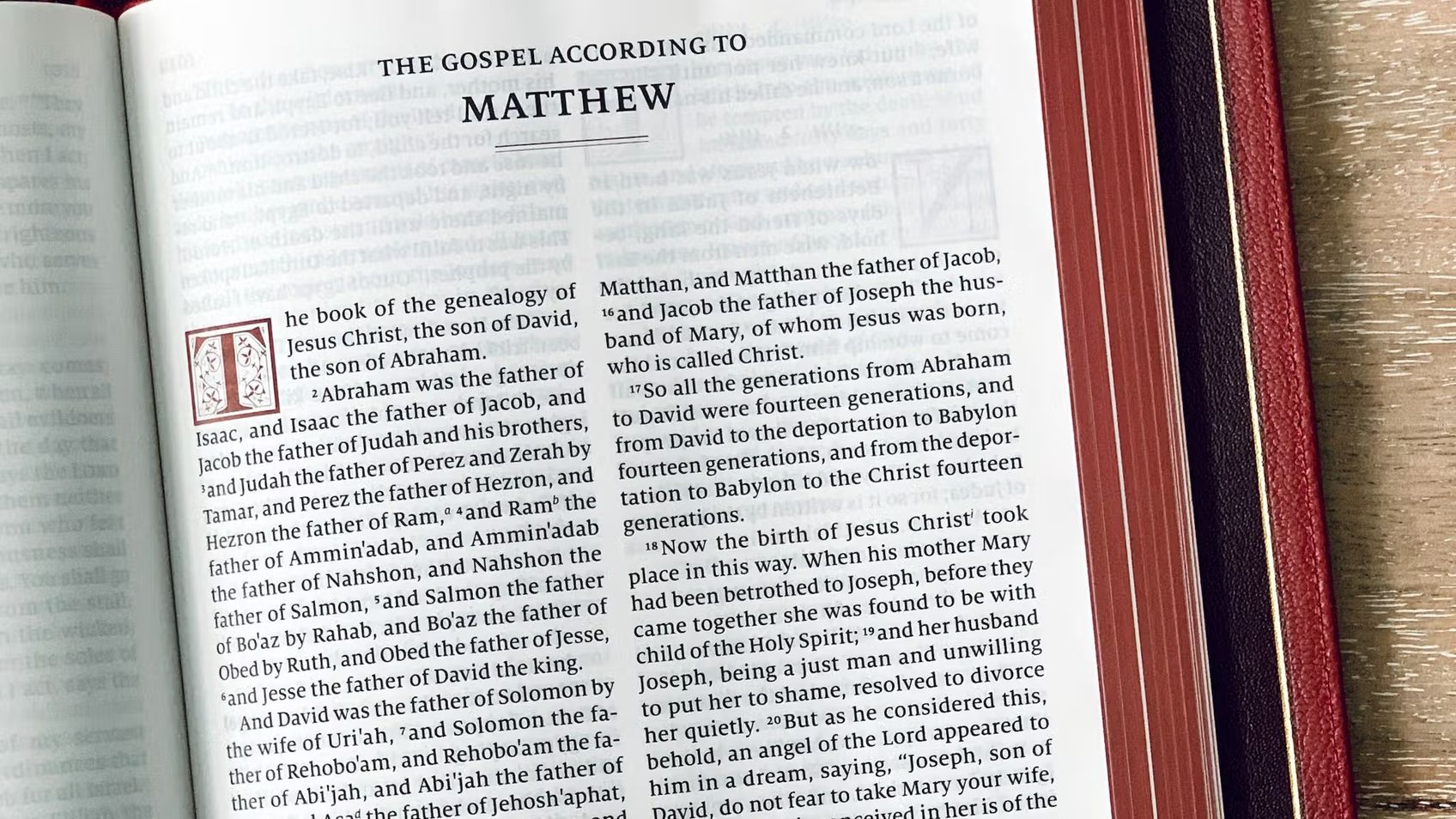John 21

Gospel of JohnSteve Gregg
In "John 21," Steve Gregg provides insight into the final chapter of the Gospel of John. He notes that this chapter serves as an intentional epilogue to the previous 20 chapters and recounts the story of Jesus appearing to his disciples at the Sea of Tiberius. Gregg delves into the significance of the interactions between Jesus and Peter, examining their use of different words for love and discussing the possibility of hidden meanings in their dialogue. Ultimately, Gregg suggests that this chapter provides important context for understanding the fate of the disciple John.
More from Gospel of John
37 of 38

John 20
Gospel of John
In this discussion, Steve Gregg examines the events surrounding the resurrection of Jesus as recorded in the four Gospels, particularly in John 20. He
Series by Steve Gregg

Genesis
Steve Gregg provides a detailed analysis of the book of Genesis in this 40-part series, exploring concepts of Christian discipleship, faith, obedience

Micah
Steve Gregg provides a verse-by-verse analysis and teaching on the book of Micah, exploring the prophet's prophecies of God's judgment, the birthplace

Ephesians
In this 10-part series, Steve Gregg provides verse by verse teachings and insights through the book of Ephesians, emphasizing themes such as submissio

Habakkuk
In his series "Habakkuk," Steve Gregg delves into the biblical book of Habakkuk, addressing the prophet's questions about God's actions during a troub

Church History
Steve Gregg gives a comprehensive overview of church history from the time of the Apostles to the modern day, covering important figures, events, move

Strategies for Unity
"Strategies for Unity" is a 4-part series discussing the importance of Christian unity, overcoming division, promoting positive relationships, and pri

Zechariah
Steve Gregg provides a comprehensive guide to the book of Zechariah, exploring its historical context, prophecies, and symbolism through ten lectures.

1 Kings
Steve Gregg teaches verse by verse through the book of 1 Kings, providing insightful commentary on topics such as discernment, building projects, the

Gospel of John
In this 38-part series, Steve Gregg teaches verse by verse through the Gospel of John, providing insightful analysis and exploring important themes su

Charisma and Character
In this 16-part series, Steve Gregg discusses various gifts of the Spirit, including prophecy, joy, peace, and humility, and emphasizes the importance
More on OpenTheo

Does God Hear the Prayers of Non-Believers?
#STRask
February 26, 2026
Questions about whether or not God hears and answers the prayers of non-believers, and thoughts about a church sign that reads (as if from God), “Just

An Invitation to the 2026 Coram Deo Pastors Conference
Life and Books and Everything
February 18, 2026
"I love being a pastor, and I love pastors, which is why I hope you will consider joining us at the Coram Deo Pastors Conference in 2026." —Kevin DeYo

What About Those Who Never Heard the Name of Jesus?
#STRask
December 22, 2025
Questions about what will happen to those who never heard of Jesus or were brought up in a different faith, whether there’s biblical warrant to think

Can Two Logical People Come to Conflicting Conclusions Without Committing a Fallacy?
#STRask
January 8, 2026
Questions about whether two logical people can come to conflicting conclusions on a topic without committing a fallacy, how Greg, as a public figure,

Why Is It Necessary to Believe Jesus Is God?
#STRask
February 19, 2026
Questions about why it’s necessary to believe Jesus is God, whether belief in the Trinity is required for salvation, and why one has to believe in the

The Making of the American Mind with Matthew Spalding
Life and Books and Everything
February 2, 2026
The United States is unique in how much attention it pays to its founding, its founders, and its founding documents. Arguably, the most famous and mos

The Man on the Middle Cross with Alistair Begg
Life and Books and Everything
November 10, 2025
If you haven’t seen the viral clip, go see it right now. In this episode, Kevin talks to Alistair about the preaching clip he didn’t intend to give, h

How Would You Convince Someone That Evil Exists?
#STRask
November 17, 2025
Questions about how to convince someone that evil exists, whether Charlie Kirk’s murder was part of God’s plan, whether that would mean the murderer d

Can You Provide Verifiable, Non-Religious Evidence That a Supernatural Jesus Existed?
#STRask
November 10, 2025
Question about providing verifiable, non-religious evidence that a supernatural Jesus existed.
* I am an atheist and militantly anti-god-belief. Ho

Prove to Me That Jesus Is Not a Created Being
#STRask
January 26, 2026
Questions about why we should think Jesus is not a created being, and what it means to say God became fully human if part of being human means not bei

When I Can’t Stop Thinking About Something, Is That God Speaking?
#STRask
December 1, 2025
Questions about whether having a recurring thought is an indication God is speaking to you, what to say to someone who says they sinned because “God t

The Resurrection Standoff: Licona vs. Ehrman on the Unbelievable Podcast
Risen Jesus
October 22, 2025
This episode is taken from the Unbelievable podcast with Justin Brierly in 2011 when Dr. Bart Ehrman and Dr. Michael Licona address the question: Is t

Why Would Any Rational Person Have to Use Any Religious Book?
#STRask
December 8, 2025
Questions about why any rational person would have to use any religious book, whether apologetics would be redundant if there were actually a good, un

Why Are So Many Christians Condemning LGB People Just Because of How They Love?
#STRask
January 15, 2026
Questions about Christians condemning LGB people just because of how they love, how God can expect someone to be celibate when others are free to marr

Did Jesus Prove He Wasn’t Sinless When He Overturned the Tables?
#STRask
December 29, 2025
Questions about whether Jesus proved he wasn’t sinless when he overturned the tables, whether Jesus’ response to the Pharisees in Mark 3:22–26 was a b
